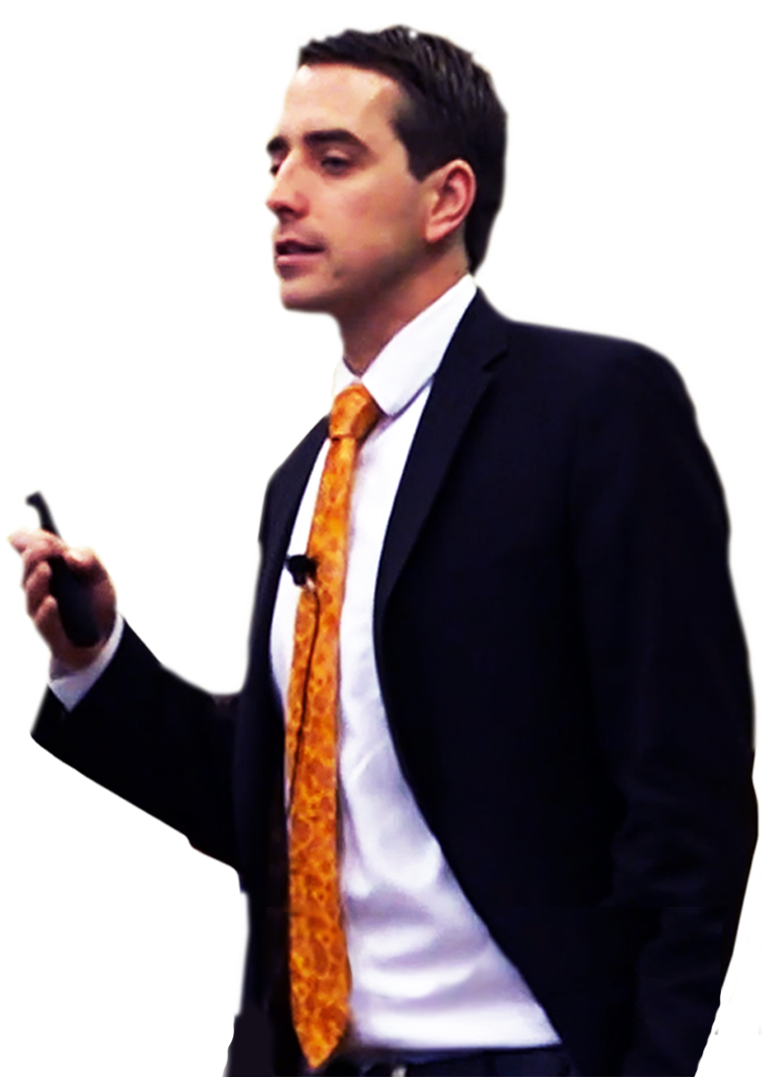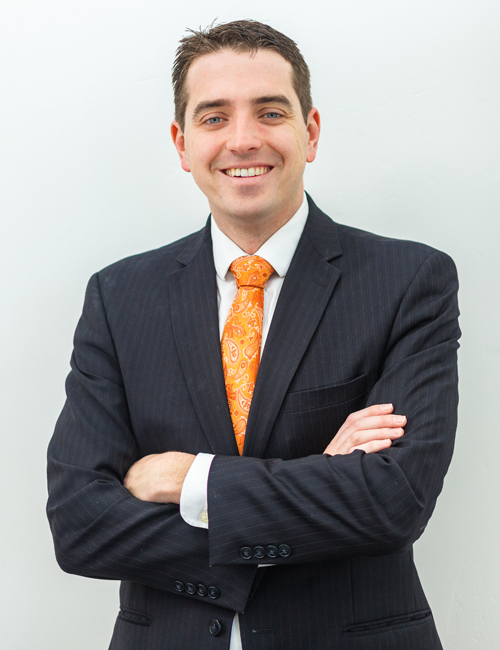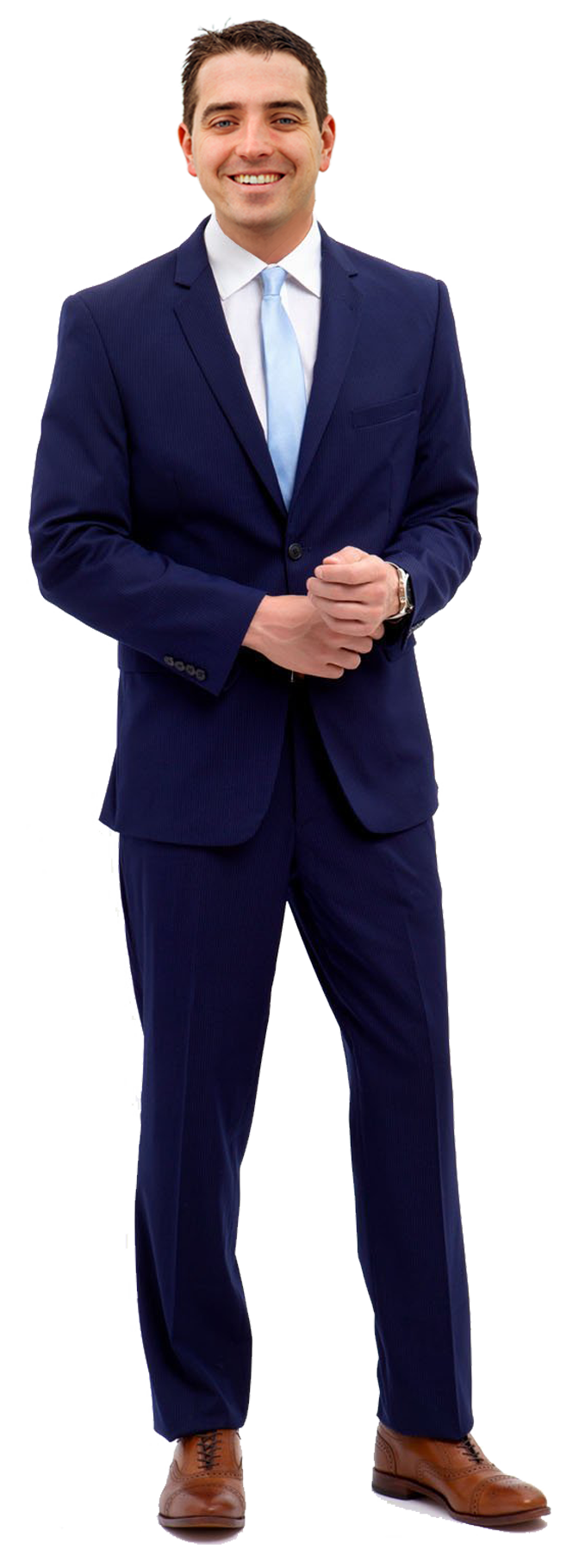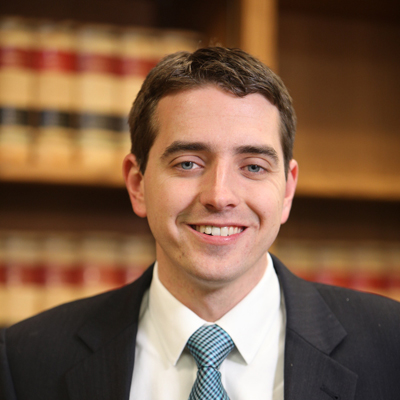
JAMES HEILPERN
Speaker | Consultant | Author
At the forefront of the emerging legal discipline of Law and Corpus Linguistics

If you're looking for a renowned expert on the emerging legal discipline of Law and Corpus Linguistics, start here:

James Heilpern is a pioneer at the forefront of the emerging legal discipline of Law and Corpus Linguistics ― the intersection of big data and legal interpretation.
As an appellate advocate and academic, he has been a key figure in the development of the legal theory and practice of this new tool.
A popular instructor of judicial education and CLE courses, he has personally trained judges and clerks on four U.S. Circuit Courts of Appeal, three U.S. District Courts, and seven state supreme courts.
James Heilpern is president and managing partner of Corpus Legal Services, the nation's leading provider of corpus linguistic training and consulting services for lawyers. He also serves as the first Law and Corpus Linguistics Fellow at the J. Reuben Clark Law School at Brigham Young University, where he teaches Law and Corpus Linguistics to law students with Associate Chief Justice Tom Lee of the Utah Supreme Court.
Having trained dozens of state and federal judges, James Heilpern is the nation's leading provider of training on corpus linguistics for lawyers. James' CLE courses can help your firm provide the empirical evidence judges want to see, whether it's to help answer difficult interpretive questions and or resolve trademark disputes.
A popular instructor of judicial education courses, James Heilpern has personally trained judges and clerks on at least four U.S. Circuit Courts, two U.S. district courts, and seven state supreme courts.
Broad overview of the emerging discipline of law and corpus linguistics, including its theoretical underpinnings, real-world applications, and best practices. Includes a number of hands-on exercises based on real cases to familiarize participants with the available corpus tools and methods.
Advanced course on corpus methods, providing participants hands-on experience using corpus tools through a series of case-studies investigating applications of corpus linguistics to questions of statutory, constitutional, contract, and trademark interpretation.
Provides an overview of corpus applications to trademark law, especially genericity determinations. Includes a series of real-world case studies to provide participants with hands-on experience.

Provides an overview of corpus applications to trademark law, especially genericity determinations. Includes a series of hands on examples to provide participants with hands-on experience.
Explores the best and worst attempts to use corpus linguistics in appellate advocacy in federal and state courts and shares best practices for incorporating corpus-based arguments into your briefing.
• Corpus Linguistics and Statutory Interpretation
• Guns, Sex, and Privacy: Corpus Linguistics and the Constitution
• Corpus Linguistics and Contract Law
• Question of Law or Fact?: Ethical Considerations Arising From the Use of Corpus Linguistics
• Linguistic Fiction: Using Corpus Linguistics to Counter the Canons
IS JAMES AVAILABLE? Find out more about James Heilpern, at the forefront of Law and Corpus Linguistics.
James Heilpern is the first Law and Corpus Linguistics Fellow at the J. Reuben Clark Law School at Brigham Young University, where he teaches Law and Corpus Linguistics to law students with Associate Chief Justice Tom Lee of the Utah Supreme Court.
He is an associate editor for the forthcoming book Law and Corpus Linguistics, being published by Oxford University Press and numerous law review articles published in the Southern California Law Review, George Mason Law Review, Jurimetrics, and others.
A popular instructor of judicial education courses, James has personally trained judges and clerks on at least four U.S. Circuit Courts, two U.S. district courts, and seven state supreme courts.

Law and corpus linguistics is an emerging legal discipline that seeks to harness the power of big data to produce empirical evidence about the meaning of legal instruments. Using corpus linguistics, savvy practitioners can produce compelling legal arguments that will turn heads in judicial chambers. Here are the top five reasons you should get up to speed on this emerging method:
(1) Judges want it: The Bench already understands the value of corpus linguistics. In just the last two years, judges and justices on the U.S. Supreme Court, U.S. Courts of Appeal for the Third and Sixth Circuits, the D.D.C., and the Supreme Courts of Utah, Michigan, and Idaho have authored landmark opinions using these new tools. State Supreme Courts are beginning to put pressure on state SGs to get up to speed on corpus linguistics and the Sixth Circuit has even begun ordering parties to provide corpus-based arguments in supplemental briefing!
(2) Often leads to speedy settlements: The use of corpus linguistic expert witnesses is increasingly commonplace in certain areas such as trademark litigation and contract invalidation cases. The evidence presented is often irrefutable and leads to quick, favorable settlements.
(3) Can help you frame your case: Leading legal scholars in the field (including myself) have noted that the use of corpus linguistics is forcing judges to confront glaring holes in modern legal theory such as the lack of uniform definitions for common place terms such as "ordinary meaning" and "ambiguity." So long as those deficiencies exist, corpus linguistics can provide flexibility to practitioners in framing their normative case.
(4) Wide Application: Corpus linguistics is helpful in answering a wide variety of legal questions including:
- What is the "ordinary meaning" of a statutory term?
- What is the "original public meaning" of a constitutional provision?
- What is the "plain meaning" of a contract?
- Is a particular statutory term a "technical or legal term of art?
- Has a trademark become "genericized"?
- Was a trademark "generic ab initio"?
- How would a "Person Having Ordinary Skill In the Art" interpret construe a patent claim?
- In what circumstances should the semantic canons of construction apply?
(5) It's only going to become more commonplace: All signs indicate that the use of corpus linguistics is only going to accelerate. Judges around the country are clamoring to be trained through my judicial education courses. Law professors are incorporating corpus linguistics into their curriculum at schools like Harvard, Yale, Chicago, BYU, Louisville, and Georgia State. It is an increasingly hot topic at legal conferences and in legal scholarship. This isn't a fad. It's here to stay.
Georgetown University professor Lawrence Solum has predicted that corpus linguistics will "revolutionize" legal interpretation. The question is what side of the revolution will you be on?
